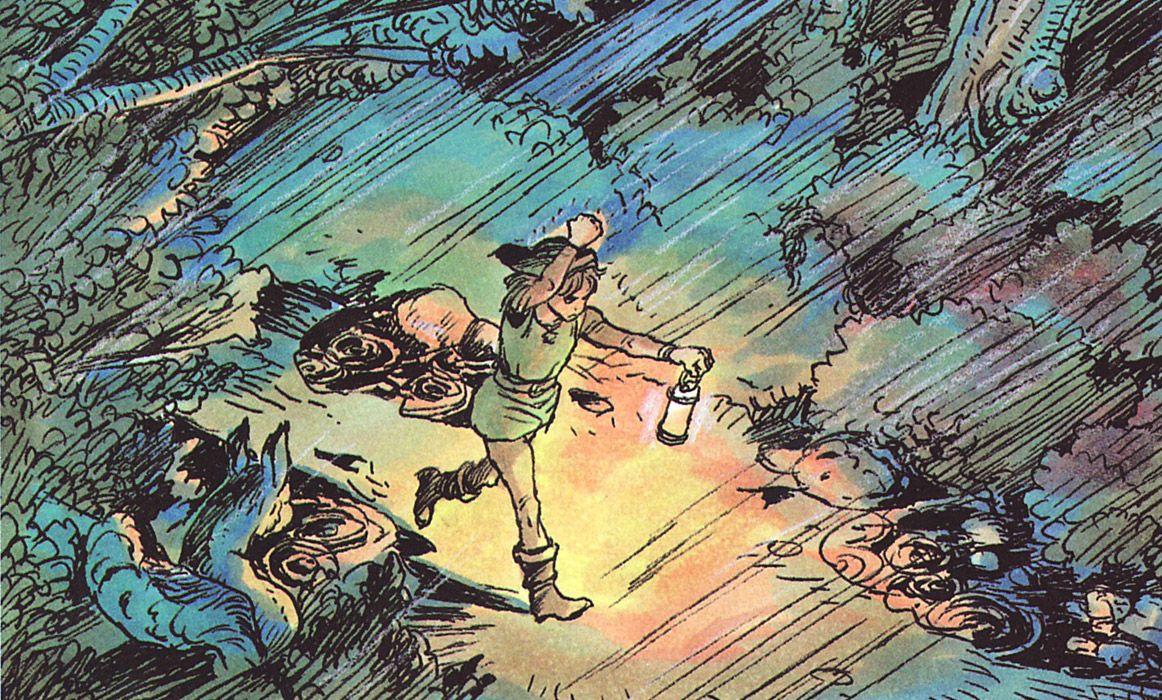The Sounds of the Hyrule Fantasy
Why the music of The Legend of Zelda is like nothing else

Koji Kondo composed the iconic theme of The Legend of Zelda in a single night. The inspiration for the game’s music had been classical pieces, and for many months of development the title crawl for The Legend of Zelda had simply been Ravel’s Bolero. After learning that the song remained under copyright, Kondo set upon a path of creative desperation. He needed a melancholy but sobering song that suggested courage to the player above all else. The theme of Zelda is foremost a song about setting out on adventure — it exists to swell your heart with possibility.
Kondo: “I was desperate. It was really down to the wire.”
The Start of the Legend
In the early days of The Legend of Zelda, the game was called The Hyrule Fantasy. It was a game of adventure, but also of swords and sorcery. It needed a soundtrack that could capture the essence of becoming lost in a fantastical world, music that matched the heroic actions of the player as they explored the endless magical realm of Hyrule.
Kondo: “The first Zelda… With Mario, the music is inspired by the game controls, and its purpose is to heighten the feeling of how the game controls. With Zelda, I was trying to enhance the atmosphere of the environments and locations. The sound of Mario is kind of like popular music, and Zelda is like… a kind of music you’ve never heard before. So I try to incorporate many different types of music to create an otherworldly feel.” [via Wired]
For those of us who have spent portions of our lives in Hyrule, those songs are an indelible part of who we are. Hearing the Main Theme, or the Song of Storms, or the Temple of Time, or Outset Island immediately draws us to a place in time. These songs set the scene so beautifully and arrest the consciousness so fully that it’s to forget that someone composed them — the music of The Legend of Zelda feels like it has always existed.
The Sound of Adventure
Do you remember where you were when you heard those first six notes of Ocarina of Time’s theme? Do you remember how you felt as that whistling ocarina played its beauty for you? For most of us, The Legend of Zelda: Ocarina of Time holds a special place in our hearts. It makes us feel something ethereal and indescribable. From that iconic title screen of Link riding Epona across Hyrule Field, we are transformed into that otherworld by the pure majesty of the song. It carries us. It soothes us. It presents us with adventure. Koji Kondo’s songs — even against other composing titans such as Nobuo Uematsu or Yoko Shimomura — are masterworks. The music of The Legend of Zelda isn’t just iconic, it represents the very epitome of sound design in gaming and shows how powerful music is in its ability to transport the player to a believable virtual space.
The Legend of Zelda series is filled with pieces of music of remarkable adaptive clarity. There is immense wonder and majesty to the songs that define our adventures across Hyrule, whether they’re jovial or dreadful. I remember hearing the Ballad of the Wind fish for the first time on my Game Boy Color decades ago, and with each instrument acquired the song gained new depth, new bones, new dimension. The emotional response to Zelda music is downright magical.
In 2007, Koji Kondo was presented with a lifetime achievement award for his incredible music. His songs have carried us to the realm of imagination and back again regardless of system limitations or platforms — Zelda music is just as iconic and just as moving whether its coming from the tinny chiptune NES or if its being played by a full orchestra. No doubt, as you’ve been reading through this article, the very mention of Zelda music has placed those pieces in your mind or on your lips.
Kondo: “For Ocarina, we wanted something that didn’t play so often that players got tired of listening to it. So I broke it into 8-bar sections and there was some random phrasing that was implemented so that the melody would be changed up. Again, these are 8-bar sections that I created to all work together, but when combined, they change, and there’s some random stuff going on there. I really like the way that worked out.” [via Polygon]
Music of the Hero
Powerful melodies, strong choruses and playful compositions make up the body of what The Legend of Zelda’s music has been over the years. It doesn’t seem to matter if the score of a scene is the interior of a shop or the roar of a boss battle, Kondo’s work is memorable and incredible all the same. Somehow, that balance of nostalgia, adventure and creativity has allowed Kondo’s incredible pieces to come to life, and as their core melodies and themes have been revisited again and again, they’ve only become stronger. It’s difficult to truly know how much of the series’ success has been owed solely to its music, but it takes little imagination to know that without Kondo’s work, The Legend of Zelda would simply not be what it is today.
Kondo: “I need to say that I didn’t do this myself. There were artists and designers, directors… they have all through their inspiration have inspired me to create many things. Without all of them together I couldn’t have done any of this. It’s definitely a team effort.As far as all the gamers out there who truly have appreciation for the music, I hope that as you continue to play and enjoy our games that you’ll not just play, but truly listen to and enjoy the musical side of them.” [via IGN]
The music of The Legend of Zelda always makes us feel something because it remains the epitome of environmental storytelling through melody. Think upon how much you learn about Zelda’s world just through the design of the main themes. Think about what hearing Midna’s Lament or The Lost Woods or Majora’s Theme makes you feel. Every piece of Zelda music so perfectly captures the emotion of the scene, the dungeon, or the boss that to remove a single song would be to pick at the threads of the entire series and unravel decades of majesty. Zelda music gives us comfort, it gives us control, and in some cases fills us with dread and unease.
Most of all it makes us want to play.
